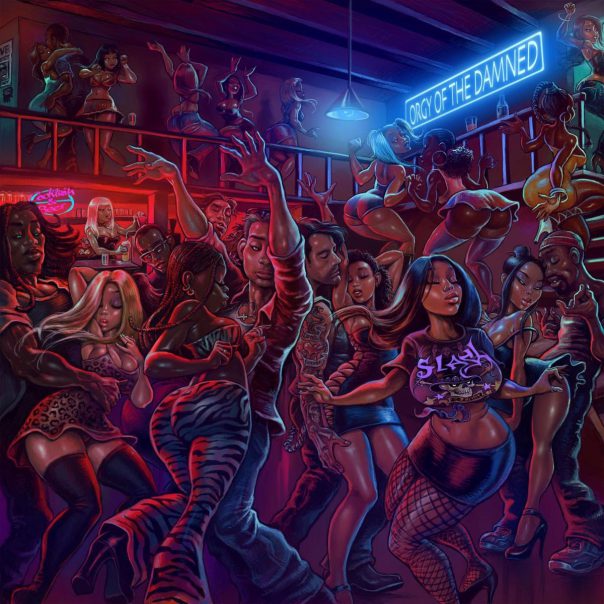Slash and friends give blues, rock classics tough, reverential treatment on ‘Orgy of the Damned’

Slash, “Orgy of the Damned.”
The blues come in many colors, and Slash made some solid and varied – if not terribly original – choices for his sixth studio album outside of Guns N’ Roses, Orgy of the Damned.
Orgy of the Damned
Slash
Gibson Records, May 17
7/10
Get the album on Amazon Music.
Most of the material on his first album since 2022’s 4, a collaboration with Myles Kennedy, boasts a somewhat more organized guitar crunch than the familiar songs of his mercurial former band, but anyone who listens to this album in one sitting risks succumbing to six-string overdose.
Indeed, if you like extended solos by the artist, born Saul Hudson, you’re in the right place. Most of the 11 cover versions here of blues, classic rock and Motown standards end that way.
But by the time most of those long final guitar riffs take off, most of these songs have already hit hard and hit strong, thanks to a talented field of guest vocalists and – in two cases – guitarists that offer a strong instrumental counterpoint to Slash’s familiar style.
“Hoochie Coochie Man,” a Willie-Dixon-penned blues standard, gets a fairly faithful slow treatment here, with ZZ Top’s Billy F. Gibbons slide work and scratchy vocal making this song an album highlight.
Similarly, Gary Clark Jr. lends both his voice and guitar to Robert Johnson’s “Crossroads,” in an update of Cream’s 1968 live recording. It’s a tough performance, and on both these songs, Slash’s lead and rhythm work allow Clark’s and Gibbons’ playing to stand in bold relief.
But unlike Aerosmith’s 2004 covers LP, Honkin’ on Bobo, on which that band turns blues and soul covers on their ear in their own style, the performances on Orgy of the Damned generally stay much more faithful to the best-known versions of the source material. This is especially true, at least for the first half of the song, on “Oh Well,” the 1969 Fleetwood Mac chestnut, down to the acoustic guitar riff that kicks it off, and a vocal by Chris Stapleton that recalls Peter Green’s original.
And instead of the pastoral, semiclassical treatment that Fleetwood Mac gave the last two-thirds of the 1969 album cut, Slash opts for more volume on his cover, and a long guitar outro. He is, after all, a lead guitar player.
And though the Temptations’ “Papa Was a Rolling Stone” also gets a relatively by-the-book treatment, guest singer Demi Lovato excels within those parameters.
While Slash’s playing may get overfamiliar after a while, the singers of these songs help keep things fresh. The most obscure song here, Lightnin’ Hopkins’ “Awful Dream,” gets a fairly minimal treatment, both instrumentally and vocally, by a restrained Iggy Pop. Paul Rodgers does justice to “Born Under a Bad Sign,” as does AC/DC’s Brian Johnson on Howlin’ Wolf’s “Killing Floor.” More dynamic are female vocalists Dorothy Martin and, especially, Beth Hart, who make standards “Key to the Highway” and “Stormy Monday,” respectively, their own. And Black Crowes’ Chris Robinson exchanges John Kay’s menace on Steppenwolf’s antidrug “The Pusher” for a different kind of desperate cry.
Slash’s band — guitarist Tash Neal, bassist Johnny Griparic, keyboardist Teddy Andreadis and drummer Michael Jerome – provides fine support, and Neal turns in a solid lead vocal on Stevie Wonder’s “Living in the City.”
Even if the songs on Orgy of the Damned are (mostly) old warhorses that get minimal reworking, there’s a reason they’re standards. They are, in one way or another, timeless. Slash recognizes this, and most of his guests keep things interesting around him.
